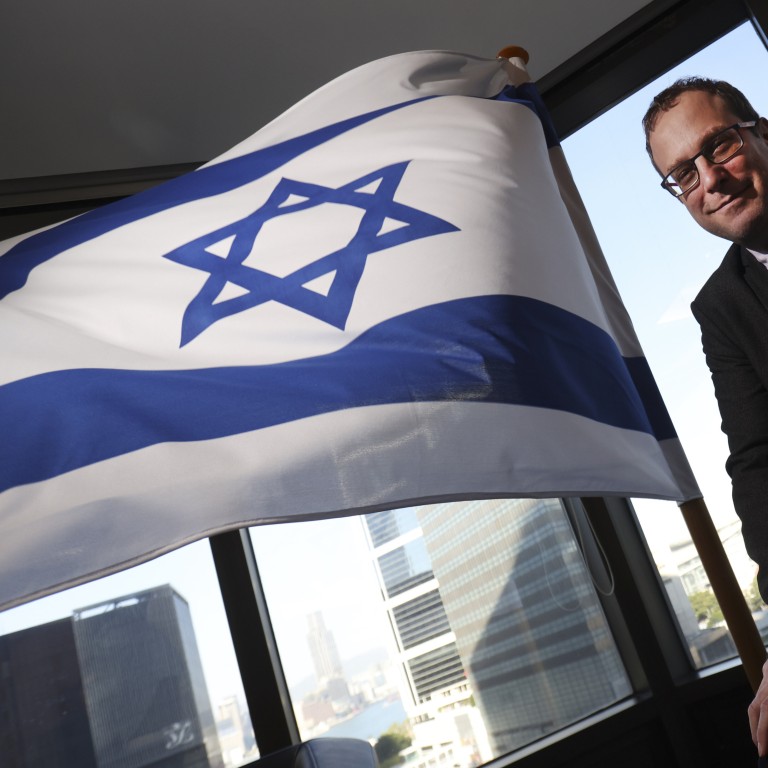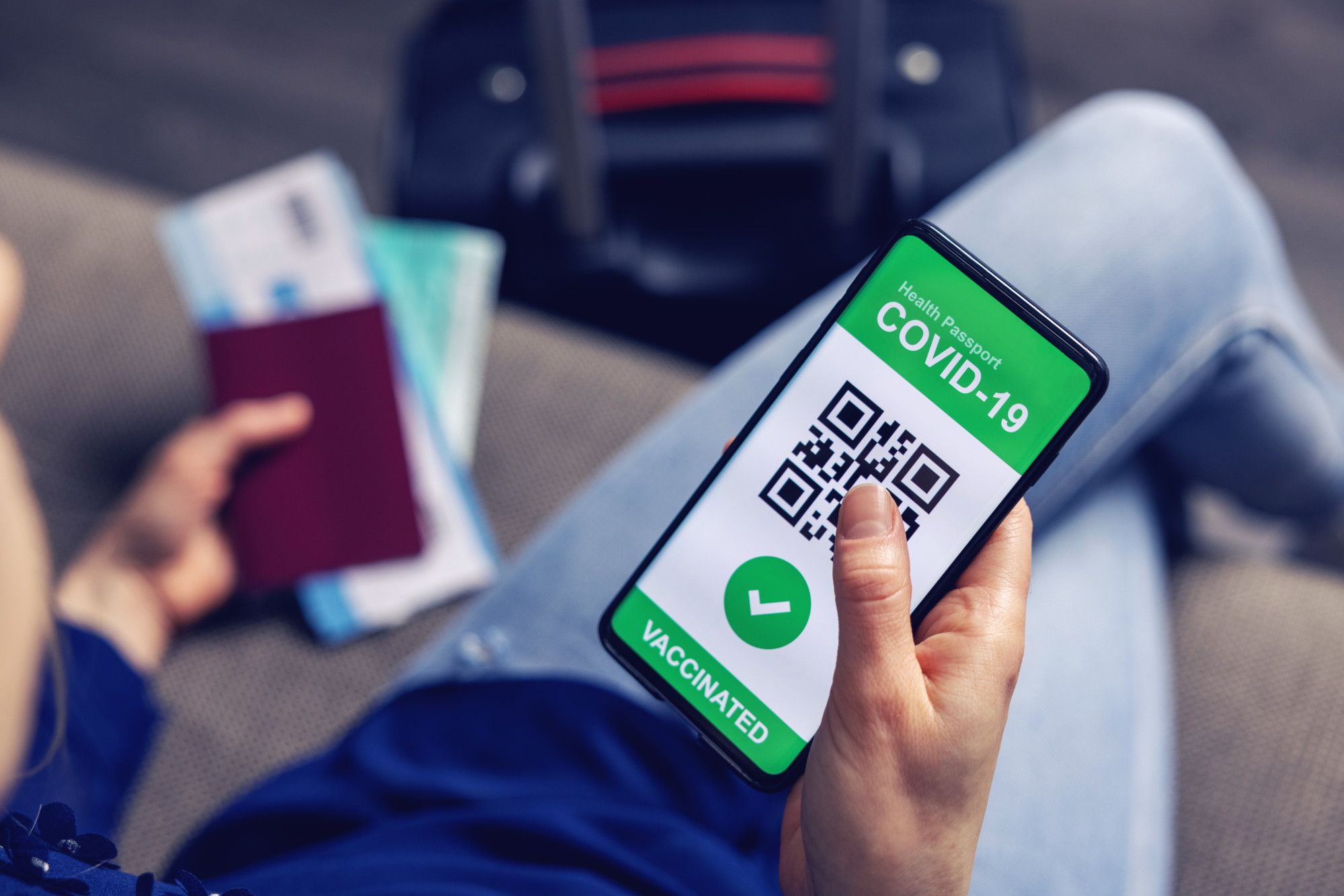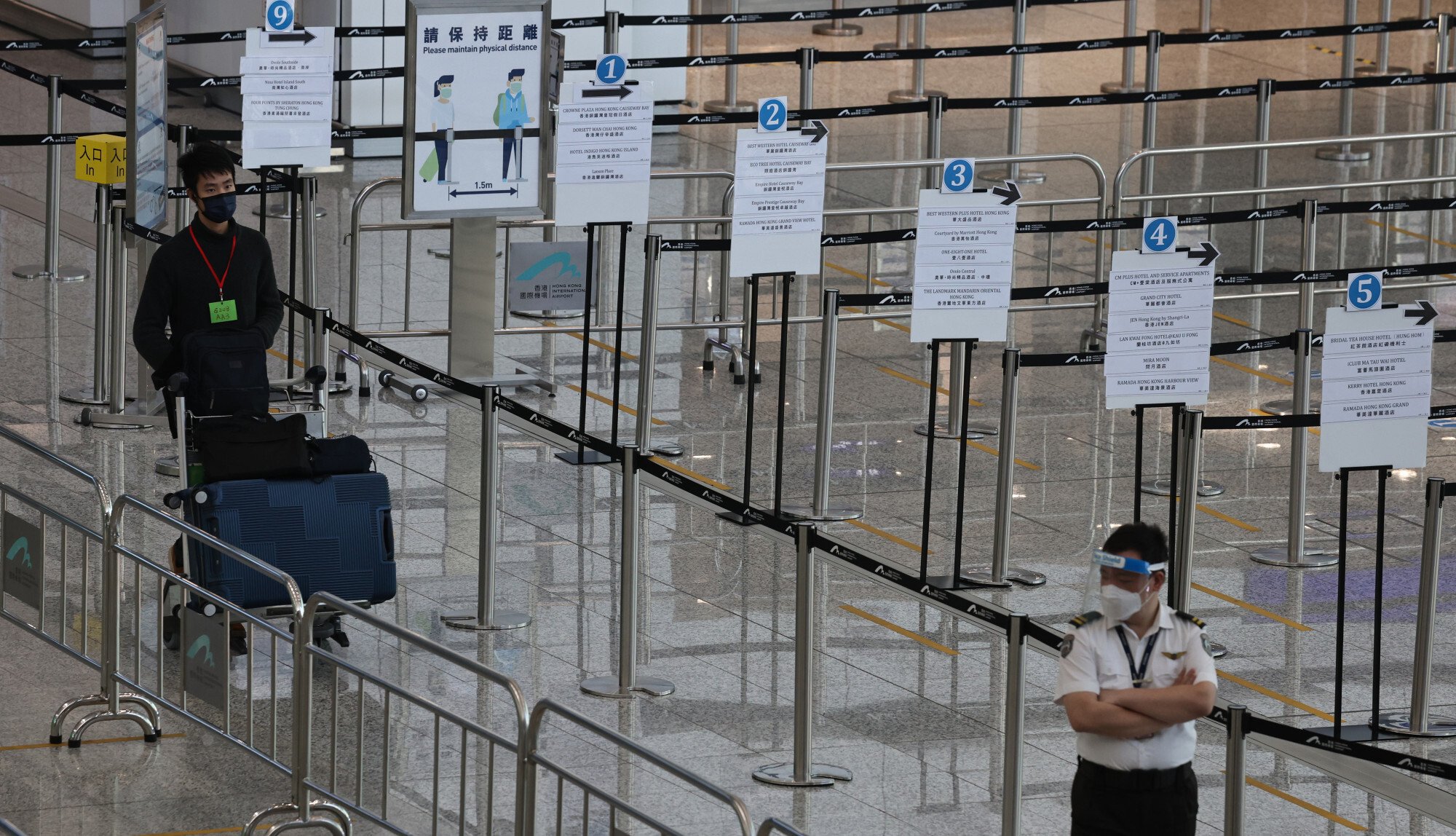
Israel understands need for Covid-19 vaccine passports. What about Hong Kong? Country’s top diplomat in city optimistic policy will revive travel amid pandemic
- Israeli consul general Amir Lati also voices concern among city’s Jewish community that strict quarantine rules will hurt business and push people to leave
- Key priorities for Middle Eastern nation include strengthening exchange of technology with Hong Kong, especially in Greater Bay Area
Adopting vaccine passports will help countries reopen their borders during the Covid-19 pandemic and encourage citizens to receive their jabs, Israel’s top diplomat in Hong Kong has told the Post.
In his first interview since arriving in the financial hub in September, Israeli Consul General Amir Lati said he believed nations would begin using the documents proving a person was vaccinated as they sought to restore travel with each other.
“It is important to have it to ensure the fast opening up,” he said.
Hong Kong is considering its own version of a vaccine passport, which would bar residents from numerous venues, but Chief Executive Carrie Lam Cheng Yuet-ngor said this week that the city was not at the stage of needing them.
Hong Kong has ‘not hit stage’ where vaccine passports necessary: Carrie Lam
In Israel, people well understood the importance of having such documents as a tool to protect the community, Lati said.
The country had adopted a “fact-based” approach in tackling the pandemic and its strategy of living with the disease struck a balance between promoting vaccination while also gradually opening up to minimise undermining the economy, he said.
Israel has drawn praise for its quick adoption of the jabs and being one of the first to launch vaccine passports.
The Middle Eastern nation of just over 9.2 million people has recorded 1.3 million coronavirus infections and 8,210 related deaths, while Hong Kong, with 7.5 million residents, has confirmed 12,483 Covid-19 cases with 213 related fatalities.
Hong Kong’s change to Covid-19 quarantine rules has business groups exasperated
The financial hub has adopted a strict zero-Covid policy in line with mainland China. To tackle the Omicron variant, the city has also moved more than 50 countries to its list of high-risk countries for Covid-19, which means non-residents are barred from entering while Hongkongers arriving from those nations must undergo 21 days of quarantine.
On Saturday, Hong Kong confirmed just one imported coronavirus case, involving a foreign domestic helper whose infection was picked up during mandatory quarantine upon arrival.
Israel was the first country to shut its borders to foreigners from November 29 over Omicron concerns, to assess the impact and severity of the variant. But Lati said he did not believe the borders would remain closed for long.
While acknowledging each country had a different strategy in battling the coronavirus, Lati said some Israeli members of Hong Kong’s 5,000-strong Jewish community were concerned that the strict quarantine measures would hurt businesses and push people to leave.

“Each policy has its own price,” he said. “Of course this is something that bothers or concerns Israeli companies and Israeli people here for business reasons [and] for personal reasons that people cannot go to see their loved ones for a long time.”
If the policy continued, he pointed to summer as being a possible time when people would depart, following the end of the school year.
For companies considering opening offices in the Asia-Pacific region, the city government’s approach would be a factor when evaluating whether to use Hong Kong as a base, he added.
Israel began using vaccine passports in March, known as a Green Pass consisting of an app or document that shows a person’s vaccination status or recovery from Covid-19. But the idea of adopting the documentation has faced resistance in some European countries, such as Britain.
Israel’s roll-out of the BioNTech vaccine was among the world’s fastest, and more than 5.7 million citizens, or roughly 70 per cent, have been inoculated but the drive has since slowed.
Lati pointed to a “small and sometimes noisy” segment of its population that opposed the jabs. He believed the solution was more education as well as the use of the Green Pass to be allowed into public places.

Hong Kong has hit its initial target of having 70 per cent of its eligible population vaccinated with a first dose, but the rate for older residents is less impressive. Just 46 per cent for those aged 70 to 79 have had at least one shot, and the mark is only 19 per cent for those aged 80 and above.
Israeli health care and fintech companies are also seeking to gain a foothold in the burgeoning urban belt. China is Israel’s second-largest trading partner.
“I would like to put an emphasis on collaboration in the field of technology, laying the [ground] for opportunities in Israel for the Hong Kong business community and for Hong Kong investors,” he said. “I hope that the GBA will also help to increase economic relations in this triangle of Israel, Hong Kong, and mainland China.”

